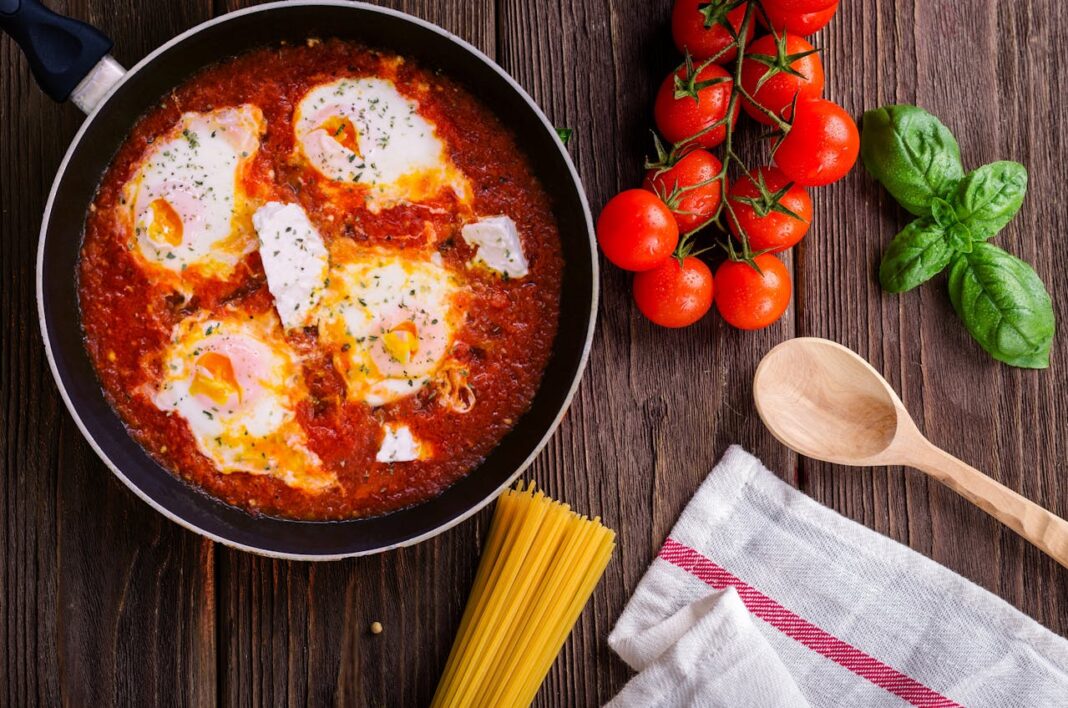Many people want to lose weight healthily. Different diets are often tried, but sticking to them using effective means can be difficult. Our weight loss tips will support you with the aim of shedding the pounds in the long term this time.
- Advertisement -
Nutrition tips for healthy weight loss
Have you tried many diets but unfortunately without success? With the right diet, it can work. These 12 nutrition tips will help you improve your eating habits in the long term and achieve your goal of losing weight healthily.
1. Reduce your consumption of sweets
Certain snacks and sweets contain a lot of sugar , which can cause your blood sugar levels to rise quickly, giving you a short-term energy boost. A short time later, however, the blood sugar level drops again, which can lead to lower performance and, to make matters worse, food cravings. This cycle often leads to eating sweets again.
2. Prefer whole grain products
They contain the whole grain of the grain and therefore, in addition to vitamins and minerals, plenty of fiber, which promotes digestion, strengthens the intestines and keeps you full for a long time.
3. Less animal products
High-fat animal foods contain saturated fat , which can have an adverse effect on your cholesterol levels. When it comes to meat and dairy products, choose low-fat versions. Overall, the German Nutrition Society (DGE) recommends a weekly meat consumption of a maximum of 300 to 600 grams.
4. Vegetables, salad, raw vegetables and fruit every day
Fresh vegetables, raw vegetables and salad ( e.g. cabbage, carrots, fennel, cucumbers, spinach and tomatoes) contain few calories, lots of fiber and, thanks to their large volume, ensure pleasant satiety. To do this, add two small portions of fruit every day and prefer low-sugar varieties ( e.g. berries, apricots and tangerines).
5. Plenty of non-energy drinks
Soft drinks contain a lot of sugar and lots of calories. If you want to lose weight, choose the healthy option: (mineral) water and unsweetened tea – preferably two liters a day. To add variety to your choice of drinks, you can flavor your glass of water with fruit slices or herbs, for example .
6. Alcoholic drinks in moderation
Beer, wine or cocktails are high in calories and inhibit fat burning. Therefore, enjoy these drinks in small quantities during beautiful moments or on special occasions. Good alternatives are non-alcoholic beer and non-alcoholic wine or sparkling wine.
7. Eat consciously and enjoy
When you start eating, it takes about a quarter of an hour until you first feel full. Those who eat quickly, chew and swallow poorly often eat larger portions than people who take enough time for a meal and eat consciously . Treat yourself to the pleasure and chew thoroughly, this also supports digestion and prevents flatulence.
8. Pay attention to your feeling of fullness
The plate is still half full, but actually you are already slightly full. Now is the optimal time to finish eating. Your body has signaled to you that it has had enough. Nothing more is good for you. To avoid unnecessary waste, you can have the leftovers packed up and given to you in restaurants, for example.
9. More physical exercise
To lose weight, you need to burn more calories than you consume. You can support this through sport and exercise . Choose something you enjoy and stick with it.
10. Cut fat
Fat is quite high in calories. One gram contains around nine calories, which is twice as much as carbohydrates, for example. On a low-fat diet, for example, you reduce the fat portion of your daily calorie intake to 30 percent. It is not a classic diet if you prefer vegetable oils and avoid hidden fats when it comes to fat intake. This also corresponds to the recommendations of the German Nutrition Society.
11. Favor complex carbohydrates
We already mentioned sweets in point 1 – they consist of simple carbohydrates that fill you up quickly but only for a short time. The situation is different with complex carbohydrates, which include whole grain products, many vegetables, nuts, legumes and potatoes. The body must first break down the molecular chains before it can metabolize them. They therefore fill you up more slowly, but for longer. With a low-carb diet, carbohydrate intake is generally reduced.
12. Give yourself time to lose weight
Ten kilos in a week – that sounds good, right? Unfortunately it’s not that easy. During strict crash diets, the body switches to emergency mode in order to survive on less food in the future. After the diet, the dreaded yo-yo effect sets in, because your body, which has learned to get by on less, forms new fat deposits in order to be prepared for future phases of hunger.
Even the toughest diets are useless if you continue with your previous eating habits.
Lose weight healthily: observe your eating habits
What role does food play in your life? In the evening, do you still remember what you ate for lunch? If you want to lose weight healthily, it is worth observing your eating habits and perhaps even writing down what you eat and drink for a few days. Are you hungry or have an appetite? Do you eat relaxed or hectic? How much do you eat? How do you feel afterwards? Important: Observe, but do not judge anything.
How stress affects healthy weight loss
The hormones adrenaline and cortisol are released when we are stressed and put the body under tension. What was essential for survival in prehistoric times as a “flight and fight reaction” has become a permanent mode for many people today. The excessive release of these stress hormones can promote cravings for sweets even though you’re not hungry. Emotional eating is intended to comfort and uplift, but it quickly becomes a burden.
Losing weight and healthy eating
Losing weight healthily is easiest if you prefer wholesome, healthy foods. These provide you with all the important vitamins, minerals and fiber. They also keep you full for a long time.
Choose natural foods to lose weight
- Vegetables, salad and raw vegetables
- Low-sugar fruits ( e.g. blueberries, raspberries, oranges)
- Whole grain products ( e.g. whole grain bread, oatmeal , whole grain pasta)
- Fatty fish ( e.g. salmon, mackerel, herring) – they contain healthy omega-3 fatty acids
- Nuts and vegetable oils ( e.g. rapeseed and olive oil) – these also contain omega-3 fatty acids
- Low-fat dairy products ( e.g. low- fat quark, cottage cheese)
- Legumes ( e.g. beans, peas, lentils)
A diet with lots of vegetables, fruit, legumes, whole grain products, high-quality vegetable oils, but with little meat and sausage is not only good for losing weight, but you can also prevent cardiovascular diseases.
Eat these foods rarely and in moderation:
- Confectionery ( e.g. chocolate, gummy bears, ice cream, cakes)
- Chips and flips
- Sweetened fruit yoghurts
- Cream cakes
- Ketchup, mayonnaise, barbecue sauces
- Dried fruits
- Fatty meat and sausages
- processed foods such as ready-made products
Try to integrate these nutritional tips into your everyday life, but avoid banning certain foods, as these promote ambivalence, i.e. inner resistance. Losing weight healthily by changing your eating habits takes time, but it’s worth it.

